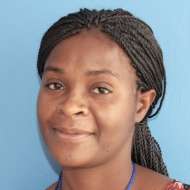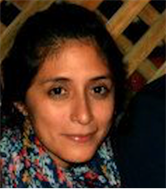Pump-Priming Project Awards - Round 5 Awardees
Listed on this page are the successful projects awarded in our fifth round of pump priming.
Understanding the impact of toxin variants on Diptheria vaccine and treatment
Project Lead and Collaborators
Project Lead and Collaborators
Professor Veeraraghavan Balaji
Professor of Clinical Microbiology
Christian Medical College (India)
Collaborator:
Dr Ankur Mutreja, University of Cambridge (UK)

Project overview
Project overview
Summary
Diphtheria is a historical and vaccine preventable disease (VPD) that is on the rise. Diphtheria vaccine, a toxoid formulation, which is part of every nation’s childhood vaccination program and diphtheria anti toxin (DAT), used in treating severe diphtheria, are both based on just one strain type.
We recently discovered several new variants of diphtheria toxin (DT) with mutations that highly impact the structure of diphtheria toxin. Most of the significant toxin mutations were found in strains collected from India, where the highest number of diphtheria cases have been consistently reported over the last few years.
In this project, we would sequence and analyse a collection of 506 Corynebacterium diphtheriae strains, isolated from patients in India since 2015. The isolates representing toxin variants would be selected for DT expression and purification. Any change in toxin variants’ binding efficiency against the currently used DAT would be assessed and the data from this study would be used as a proof-of-concept for bigger global study.
This work is likely to encourage a long pending dialogue on re-assessing both diphtheria vaccine and treatment landscapes.
Project outcomes
Diphtheria is a historical and vaccine preventable disease (VPD) that is on the rise. Diphtheria vaccine, a toxoid formulation, which is part of every nation’s childhood vaccination program and diphtheria anti toxin (DAT), used in treating severe diphtheria, are both based on just one strain - PW8.
Recently, we identified 18 different variants of diphtheria toxin (DT) with few having the mutations that had a high, moderate, or low impact on the structure of the toxin. The majority of these toxin variants were discovered in strains obtained from India, where the biggest number of cases of diphtheria have consistently been recorded over the past few years. Although AMR is not a concern right now, administering first-line empirical antibiotics as a treatment option will likely become more challenging in the years to come due to the evolving resistance trend.
We were able to successfully identify seven distinct toxin variants that may have an impact on existing treatment options, and those that represented the toxin protein mutation were DT expressed and purified. Our findings from the BactiVac project indicate that DAT produced against the PW8 vaccination strain of C. diphtheriae has a decreased affinity for the diphtheria toxin variants of C. diphtheriae and all C. ulcerans. Based on this in-vitro evidence and the increasing incidence of strains with such toxin variants raises the possibility of vaccine escape and lower antitoxin treatment efficacy globally.
Using the results of this study as a proof-of-concept, we have recently been able to secure additional funding from ICMR (an Indian funding organisation) for a period of three years. The funding will allow screening and sequencing of more diphtheria toxin variant strains.
Profiling long-term, antigen-specific memory B cells to oral Cholera vaccine in an endemic population
Project Lead and Collaborators
Project Lead and Collaborators
Dr Caroline Chisenga
Postdoctoral Research Fellow
Centre for Infectious Disease Research in Zambia (Zambia)
Collaborator:
Professor Adam Cunningham, University of Birmingham (UK)

Project overview
Project overview
Summary
Zambia is among the countries in sub-Saharan Africa that contribute to the 2.9 million cases and 95,000 deaths resulting from cholera globally. The periodicity of outbreaks cannot be predicted. For example, in the last two decades, Zambia experienced multiple, intermittent outbreaks biannually until 2016. There is inadequate knowledge on long term immunity to cholera after natural infection or vaccination, which, if improved, could help identify ways to improve vaccination strategies.
During the 2016 outbreak, the oral cholera vaccine Shanchol™ (OCV) was introduced into Zambia, with >420,000 doses given to >70% of the target population. In 2021, re-vaccinations are being offered in known hotspot areas to booster immunity against cholera. Here, we propose to collect peripheral mononuclear cells (PBMCs) and serum from previously-vaccinated individuals currently under follow-up and those unvaccinated but exposed to cholera. Memory B Cells (MBCs) from fully or partially-vaccinated (received dose one only) and exposed vaccine naïve individuals will be profiled to determine whether the development of long-term memory to cholera is inferior in naïve individuals’ compared to vaccinated individuals.
Dr. Caroline C Chisenga at Centre for Infectious Disease Research in Zambia (CIDRZ) is investigating Shanchol™-induced long term immunity. Professor Adam Cunningham has experience on how adaptive immunity to pathogens and their component antigens are induced, maintained and function. He will provide support on T and B cell work using PBMCs. Findings will inform global thinking on memory to cholera; when it is lost and potentially when cholera re-vaccination should be implemented in hotspot areas.
Project outcomes
In Zambia, oral cholera vaccine - Shanchol - is immunogenic. However, we found that generated vibriocidal titres post vaccination wane quickly irrespective of previous vaccination status. Although titres begin to drop by day 14 the levels by day 90 are still insignificantly elevated compared to baseline levels.
Also with the high HIV burden in Zambia, we also found that generally persons living with HIV have lower baseline vibriocidal levels compared to their counterparts despite the rate of waning being the same across all treatment arms i.e. those previously vaccinated with single dose, those vaccinated with 2 doses and those who were not previously vaccinated.
Our conclusion therefore is that if previous exposure to cholera and or vaccination is not sustaining the immune response to oral cholera vaccine, then there is urgent need to understand why this is so if we are to totally eliminate cholera per the Zambia national multisectoral cholera elimination plan. We hope that the system's serology approach would provide more insight and inform vaccine developers.
Immunogenicity of Group B Streptococcus (GBS) in fish following vaccine delivery via pH-responsive vaccine carriers within the feed
Project Lead and Collaborators
Project Lead and Collaborators
Dr Tharangani Herath
Senior Lecturer
Harper Adams University (UK)
Collaborators:
Dr Nguyễn Ngọc Phước, Hue University of Agriculture and Forestry (Vietnam)
Dr Sudaxshina Murdan, University College London (UK)
Professor Abdul Basit, University College London (UK)
Professor Ruth Zadoks, University of Sydney (Australia)

Project overview
Project overview
Summary
Group B Streptococcus (GBS) is widely known as cause of disease in babies. It also causes disease in fish with significant impact on fish survival and farmers’ livelihoods in low or middle-income countries, e.g. in Vietnam, where fish farming makes crucial contributions to food security and the economy. Worryingly, GBS from fish can cause sepsis in otherwise healthy people following foodborne transmission. This emerging disease is of such concern that the FAO Regional Office for Asia Pacific recently commissioned a Risk Profile on foodborne GBS. To combat the threat of GBS, antimicrobials are commonly used in fish farming, but this creates the risk of selection for antimicrobial resistance.
Vaccines are urgently needed as alternative method of GBS control. To be economically viable in tilapia aquaculture, oral delivery of vaccines is needed. We have developed a novel approach to oral vaccination using pH-dependent targeted delivery to the fish gut.
We now seek to establish the host immune response to GBS bacterin vaccines delivered with this methodology. To this end, we will conduct vaccination and challenge studies, and evaluate the immune response and protection induced by our prototype vaccine. The project, led by a UK and Vietnamese mid-career scientist, will bring together a unique combination of expertise in immunology, aquaculture, pharmaceutical and veterinary sciences to advance a novel approach to fish vaccination with specific application to GBS. The project will demonstrate the feasibility of this new platform technology, which could be adapted across a range of host and pathogen species.
Project outcomes
Tilapia is the third most farmed fish species in the world with the global market value of US $7.9 billion in 2020. In many low or middle-income countries, including Vietnam, tilapia aquaculture forms a crucial part of the economy, employing and feeding millions of people. However, regular disease outbreaks on farms cause waste, loss of income and even foodborne illness in humans (e.g. due to Group B Streptococcus, or GBS). Large amounts of antibiotics are used in aquaculture to control diseases. In order to reduce the risk of antimicrobial resistance in aquaculture, the industry actively seeks sustainable solutions such as vaccines. Most of the vaccines available for disease control in tilapia are injectable formulations. They are only suitable for fish that are large enough to be handled and anaesthetized. The use of oral vaccines in fish, therefore, has crucial advantages over injection. However, the development of oral vaccines for fish is considered hampered, among other things, by potential antigen degradation in the stomach before they reach the site of absorption.
In this project, we have developed a novel pH-responsive polymer encapsulated oral vaccine to prevent GBS disease in tilapia. The new technology allows administration of vaccines as a part of the feed, with release of vaccine cargo once the feed is ingested by fish. Under the experimental conditions, the novel oral vaccination was able to protect over 50 % of the vaccinated population from mortality. The fish's immune competency mechanisms were assessed by measuring specific serum antibody titres and gene expression. The antibody titre was measured using an enzyme-linked immunosorbent assay (ELISA) established during this project and showed significantly increased IgM levels in vaccinated fish. The fish-specific mucosa-associated immunoglobulin, IgT transcripts and T-related gene transcripts were significantly upregulated in the vaccinated fish compared to unvaccinated fish. With the high level of survival of fish in the group vaccinated using the gavage method, we assume that an increased level of antigen reaching the intestine may improve vaccine efficacy further. Further modification of the pH-responsive particles may help to achieve this, and to develop cost-effective approaches to fish vaccination.
How pregnancy induced changes to maternal immunity influence efficacy of maternal vaccination against Streptococcus pneumonia
Project Lead and Collaborators
Project Lead and Collaborators
Dr William Horsnell
Associate Professor
University of Cape Town (South Africa)
Collaborators:
Professor Tim Mitchell, University of Birmingham (UK)
Professor Adam Cunningham, University of Birmingham (UK)

Project overview
Project overview
Summary
Streptococcus pneumoniae (pneumococcus) is a leading cause of devastating bacterial pneumonia and sepsis in children, particularly in LMIC countries. The most effective public intervention to reduce pneumococcal diseases is vaccination. Despite the use of effective polysaccharide-based existing vaccines, pneumococcal disease still affects significant numbers of children worldwide. Underlying this continuing prevalence are (i) increasing cases of disease caused by pneumococcus serotypes not protected by existing vaccines and (ii) very early life infection prior to vaccination.
This window of susceptibility could be reduced by 1: vaccinating mothers to provide children with protection from birth and 2: using novel vaccines that overcome pneumococcal strain replacement (vaccine evasion).
We have already discovered that maternal vaccination with both an existing and a novel mucosal-delivered vaccine candidate provides long term protection to offspring against invasive pneumococcus disease (IPD). This important finding indicates that windows of vulnerability not covered by existing vaccination to IPD could be closed using similar alternative approaches.
This proposed project will use our established preclinical models to test how maternal type 2 immune bias influences development of a protective response to vaccination and subsequent short- and long-term maternal transfer of immunity to offspring. We will specifically address how manipulating maternal immunity at the time of vaccination during pregnancy enhances the efficacy of maternal transfer of protective immunity to offspring against pneumococcal disease. The findings of this work will inform on how vaccines delivered before or during pregnancy can be optimally formulated to transfer high levels of protective immunity to offspring.
Project outcome
We have found vaccination of mothers against pneumococcal infection protects offspring into adulthood. This is dependent on maternal Type 2 immunity, mothers lacking IL-4Ra transfer reduced protection to offspring. Protection relates to detection of maternal microchimeric plasma cells in offspring.
Enabling enterotogigenic E. coli vaccine introduction in Malawi using pathogen whole genome sequencing
Project Lead and Collaborators
Project Lead and Collaborators
Dr Khuzwayo Jere
Lecturer
Kamuzu University of Health Sciences (Malawi)
Collaborators:
Professor Nigel Cunliffe, University of Liverpool (UK)
Dr Philip Ashton, Malawi-Liverpool-Wellcome Clinical Research Programme (Malawi)
Dr Astrid von Mentzer, Chalmers University of Technology (Sweden)

Project overview
Project overview
Summary
Childhood diarrhoea caused by bacteria is still a significant cause of death and disease in developing countries. Two kinds of intervention — vaccines and water, sanitation and hygiene (WaSH) improvements — will play essential roles in reducing the burden of diarrhoeal disease. Enterotoxigenic E. coli (ETEC) is a major bacterial cause of diarrhoea in Malawi. Vaccines are being developed that could stop people from becoming sick with ETEC infections, although these still require further proof of effectiveness.
Before introducing a vaccine to a country, we need to know — do the bacteria targeted by the vaccine cause disease in that country? This question is particularly relevant for ETEC, as ETEC is a very diverse collection of different lineages of E. coli, with highly variable virulence profiles, and the vaccine does not protect against all ETEC variants.
We want to contribute to the success of ETEC vaccines by looking at the DNA of ETEC from children with diarrhoea, enabling us to identify which lineages are present in Malawi. If the lineages responsible for most ETEC disease in Malawi are in the vaccine, Malawi could play a pivotal role in testing the ETEC vaccine. University of Malawi, College of Medicine (now known as Kamuzu University of Health Sciences, KUHeS) and Malawi-Liverpool-Wellcome Clinical Research Programme have been at the forefront of introducing vaccines against nationally and regionally important diseases, such as rotavirus and typhoid, and we are keen to build on this strength by laying the groundwork for ETEC vaccine trials.
Project outcomes
Whole genome sequencing, or the technique of looking at all of a bacteria’s DNA, can help us to design and target vaccines appropriately, by telling us whether available vaccines will help protect against the types of bacteria circulating in the community. We have isolated and characterised for the first time in Malawi, a bacterium called Enterotoxigenic E. coli, a major cause of childhood diarrhoea in the country. Although we were unfortunately only able to sequence two Enterotoxigenic E. coli isolates, they provide a first insight into the Malawian bacterial population.
This project, supported by BactiVac, increased the capacity for ETEC research at KUHeS and MLW and provided sufficient data for a poster at the Vaccines against Shigella and E. coli conference to be held in the USA in 2022.
A combination approach to vaccination against tick-borne bacterial infections, using antigens from the tick vector and the bacterial pathogen, and evaluating the elicited immune responses
Project Lead and Collaborators
Project Lead and Collaborators
Dr Sudaxshina Murdan
Reader/Associate Professor in Pharmaceutics
School of Pharmacy, University College London (UK)
Collaborators:
Dr Christine Maritz Olivier, University of Pretoria (South Africa)
Dr Caryn Fenner, Afrigen Biologics and Vaccines (South Africa)
Professor Jose de la Fuente, Health & Biotechnology (SaBio), IREC (CSIC-UCLM) (Spain)

Project overview
Project overview
Summary
Ticks transmit an array of bacteria e.g. Anaplasma, viruses and protozoa to their human/animal hosts, causing tick-borne diseases (TBDs) in humans and animals, high morbidity, and a huge economic cost to livestock farmers. The consequences are especially severe in lower and middle-income countries as the host, vector and pathogen occur in close proximity. In Africa, ticks are expanding their geographical range, TBD incidence in livestock is increasing and tick resistance to acaricides is leading to greater antibiotic use. In Iran, antibiotic resistance genes in Anaplasma from TBD-infected animals has been reported.
Effective vaccines would prevent TBDs and the emergence of antimicrobial resistance. Currently there are no vaccines approved for tick-borne bacterial infections in humans, and the few commercially available veterinary vaccines only offer partial protection. This indicates the urgent need for more efficacious vaccines, and for novel approaches to vaccination.
Existing vaccines target either the tick vector or the tick-borne pathogen. We propose a different approach. We hypothesise that combining antigens from the vector and the pathogen in one vaccine formulation would: (i) reduce tick infestation and pathogen transmission among hosts, and (ii) enhance the ability of the host immune response(s) to protect against infection.
The aim of this project is to test a part of this hypothesis in a murine model, using Anaplasma and Ixodes tick antigens. Animals will be immunised against either the tick antigens, or the pathogen antigens, or a combination of tick and pathogen antigens, and the Th1/Th2 immune responses elicited will be measured.
Development of a novel Glycovaccine against Aeromonas hydrophila for tilapia aquaculture in India
Project Lead and Collaborators
Project Lead and Collaborators
Dr Sreeja Lakshmi
Research Scientist
King Nandhivarman College of Arts and Science (India)
Collaborators:
Dr Preetham Elumalai, Cochin University of Science and Technology (India)
Mr Thirumalaikumar Eswaramoorthy, Cochin University of Science and Technology (India)
Dr B. Vaseeharan, Alagappa University (India)
Dr Anbazhagan V, SASTRA Deemed University (India)
Dr Sean Monaghan, University of Stirling (UK)
Dr Andrew P Desbois, University of Stirling (UK)
Dr Kim Thomson, Moredun Research Institute (UK)
Dr Nopadon Pirarat, Chulalongkorn University (Thailand)

Project overview
Project overview
Summary
Aquaculture is the fastest growing food-production sector globally, with over 1 billion people relying on fish as their major protein source. Reaching harvest size in just 6 months, tilapia (Oreochromis sp.) provides essential revenue for many low-income families, and is a major trade commodity for many low to middle-income countries (LMIC). As the tilapia aquaculture sector is expanding, problems related to its farming is also increasing mostly due to infectious bacterial diseases.
Bacterial disease is one of the major threats in fish production. Common bacterial infections in tilapia include Aeromonas, Streptococcus and Flavobacterium infections which cause severe economic losses in tilapia culture. Within the aeromonads group, Aeromonas hydrophila (52.94%) was found to be involved in the greatest number of disease cases. Aeromonas has emerged as one of most important bacterial diseases for farmed tilapia, for which there is no commercial vaccine, and farmers resort to using antibiotics to control this disease. With increasing concerns about using antibiotics in aquaculture, vaccination has raised attention for disease control. The shortage of new drugs to combat antibiotic resistant bacteria has motivated researchers to discover new therapeutic modality to curtail severe infections.
Herein, we propose a novel method to target the bacterial cell surface glycan using nanoconjugates developed with naturally existing lipid signalling molecules and plant seed lectin. Considering the negative surface charge of the bacterium and the understanding that the bacterial membranes are composed of lipopolysaccharide, the project plans to synthesize novel cationic nanoparticles and functionalize them with glycan binding protein to develop a dual targeting antimicrobial agent. Vaccination has proven a successful too for controlling diseases in aquaculture, with formulations tested by vaccinating fish which are subsequently given a pathogen challenge. Many tilapia farmers will not vaccinate by injection once the fish have been moved onto the farm and would prefer fish to be vaccinated in the hatchery. We will therefore investigate a novel and innovative lectin NP antigen formulation for mucosal (oral, immersion and injection) delivery of the Aeromonas vaccine and develop a cost-effective, easily administered vaccine for use in a large scale tilapia-production both for use in India and globally.
Project outcomes
Tilapia aquaculture provides essential revenue for many low-income families and is a major trade commodity for many low to middle-income countries (LMIC). However, the intensification of tilapia aquaculture has led to an increase in infectious disease outbreaks resulting in significant losses for tilapia farmers. Vaccination has proved to be effective in protecting farmed tilapia from disease. Although efficacious, intraperitoneal (i.p) administration of vaccines is stressful for the fish and logistically challenging. Alternative vaccine delivery methods, such as oral or immersion delivery, are ideal methods for vaccine delivery in tilapia aquaculture. Advanced antigen delivery technologies such as nano vaccines and glycovaccines are exciting alternatives for administering vaccines to tilapia. The present study aimed to assess the effectiveness of a novel lectin-based glycovaccine in protecting Nile tilapia against Aeromonas hydrophila by comparing different routes of administration. The biophysical characteristics of the synthesised lectin-nanoconjugate vaccine containing formalin-killed A. hydrophila were examined by transmission electron microscopy. The glycovaccine was administered to fish by injection, immersion and oral (through their feed for seven days), followed by a booster dose 22 days post-vaccination (dpv). The vaccinated fish were infected with a virulent strain of A. hydrophila, and the infection monitored for three weeks. Samples were collected at set time points during the trial to assess specific IgM titres, histopathology, immunohistochemistry, and immune gene expression using RT-qPCR. A significant increase in immune parameters was observed with increased IgM, IgT, IgD, CD4, CD8α, IL1β, and TNFα expression (p<0.05) in the head kidney of vaccinated fish. Histopathological examination of tissues sampled from vaccinated fish showed infiltration of lymphocytes suggestive of gill and gut mucosal immune responses to the vaccine. Relative percentage survival ranged from 70% to 100% in vaccinated fish relative to the unvaccinated control after challenging fish with A. hydrophila. Greatest protection was observed in fish immunised orally with the A. hydrophila glycovaccine. The study's results suggest that this novel glycovaccine can induce a protective immune response against this problematic bacterial disease, offering an easy and safe approach for tilapia farmers to vaccinate their fish against A. hydrophila. Follow-up work will establish whether the vaccine can protect against more virulent strains of the bacterium and possibilities for commercialising the vaccine for use in tilapia aquaculture in India.
Kick-starting production process development of a porin-based NTS vaccine: Strain selection
Project Lead and Collaborators
Project Lead and Collaborators
Dr Tania Rivera-Hernandez
Research Fellow
CONACYT/Medical Research Unit of Immunochemistry (Mexico)
Collaborators:
Professor Constantino Lopez-Macias, Instituto Mexicano del Seguro Social (IMSS) (Mexico)
Professor Edmundo Calva, Instituto de Biotecnología UNAM (Mexico)
Professor Adam Cunningham, University of Birmingham (UK)

Project overview
Project overview
Summary
Development of a vaccine against Non Typhoidal Salmonellosis remains an unmet public health need. Purified outer membrane proteins (porins) from Salmonella Typhimurium (STm) have been highlighted as promising vaccine candidates. Our research team has the ability to produce highly purified porins, however the process uses a commercial strain that would complicate further development. On the other hand we have a large collection of STm strains that could be used as producing strains. In this project we aim to explore our strain collection and characterise porin producing strains that could be used in our production process. Furthermore we will purify porins from the selected strains and test their ability to trigger bactericidal antibodies against non-MDR and MDR STm strains.
Project outcome
STm porins represent promising vaccine candidates against NTS. Our team is currently developing a scaled-up production process in order to be able to manufacture this vaccine candidate at an industrial scale. As part of this scale-up process, selection of a suitable producing strain is critical. In this work we selected two strains from a panel of STm clinical isolates, representative of the ST213 genotype firstly reported in Mexico. Two novel STm strains were successfully used for STm porin production and the purified products were mainly composed of OmpC and OmpD, as shown by LC-MS analysis. One strain in particular had a significantly high yield of purified protein and low levels of LPS in the final product. The purified porins were highly immunogenic in mice, even in the absence of adjuvants, and antibody titres were higher in those mice immunised with porins purified from the novel strains compared to our reference strain. Studies regarding the protective efficacy of these porin preparations are still underway and will be critical to push forward the use of either one of this STm strains.
Humoral responses to a pneumococcal serotype-independent vaccine candidate and their correlation with protection against colonisation in the UK and Malawi
Project Lead and Collaborators
Project Lead and Collaborators
Dr Carla Solorzano-Gonzalez
Postdoctoral Researcher
Liverpool School of Tropical Medicine (UK)
Collaborators:
Dr Chris Bailey, ImmunoBiology Ltd (ImmBio) (UK)
Professor Stephen Gordon, Malawi-Liverpool Wellcome Trust (MLW) (Malawi)
Professor Daniela Ferreira, Liverpool School of Tropical Medicine (LSTM) (UK)

Project overview
Project overview
Summary
Every year there are 3.7 million episodes of severe infection caused by Streptococcus pneumoniae (pneumococcus) equating to 1.2 million deaths globally in people of all ages. Pneumococcus is covered by a sugar capsule which is variable and classifies this bacterium into 96 immunologically distinct serotypes. Pneumococcus is commonly found in the microflora that colonise the nasopharynx of healthy adults and children. This harmless state called “carriage” is a requisite for disease and a source of transmission.
To reduce the global burden of pneumococcal disease, low-cost vaccines with wide-serotype coverage that protect against carriage and disease are urgently needed. Vaccine developers, exploring the potential of conserved protein antigens, have been severely hampered by the lack of a validated correlate of protection, and some novel vaccines have foundered because of this impasse. PnuBioVax (PBV) developed by ImmBio is a multi-protein vaccine candidate with demonstrated safety and immunogenicity in a Phase I trial. Pre-liminary data generated using historical samples from the experimental challenge model with pneumococcus (LSTM), from colonised and non-colonised individuals, have shown that experimental carriage increases antibody levels against PBV and that pre-existing PBV antibody levels correlate with a shorter carriage duration. We propose a new partnership with ImmBio and the Malawi-Liverpool Wellcome-Programme to further investigate these results in different cohorts from the UK and Malawi. Success will 1) show that anti-PBV antibodies provide a correlate of protection from colonisation with a variety of pneumococcal serotypes in two distinct populations and, 2) generate preliminary data to support a trial of PBV in the Malawian and UK challenge models.
Project outcomes
Streptococcus pneumoniae (pneumococcus) causes lethal infections like pneumonia, sepsis and meningitis, affecting vulnerable populations. Pneumococcus is covered by a capsule that is variable and classifies the bacteria in serotypes, >95 different have been identified. Pneumococcus can be found in the nasopharyngeal microflora of healthy adults and children in an innocuous state called carriage. Carriage is a source of transmission and a first step to develop serious infections. Licenced vaccines are based on capsular components conferring protection against only few pneumococcal serotypes. Vaccines with wide-serotype coverage that protect against carriage and infection are needed to reduce the burden of disease caused by pneumococcus. Protein-based vaccine candidates are being explored as they could potentially confer universal protection. However, to develop successful protein-based vaccines we need to identify human immune mechanisms mediating protection against carriage and disease.
Using the multi-protein vaccinate candidate PnuBioVax (PBV) and samples from the UK (EHPC-LSTM) and Malawi (EHPC-MLW) pneumococcal challenge models, we aimed to identify antibody responses to PBV and their correlation with protection against carriage. We measured anti-PBV antibody levels before and after experimental colonisation in sera, nasal wash and bronchoalveolar lavage fluid (BAL). We used samples from challenge models with 2 different pneumococcal serotypes, SPN6B (EHPC-LSTM and EHPC-MLW) and SPN15B (EHPC-LSTM).
Results showed no difference in anti-PBV antibody levels at baseline between carriage negative and positive for any cohort. This indicates that baseline anti-PBV levels do not associate with experimental carriage acquisition. Results also showed that carriage with SPN6B (EHPC-LSTM) increases levels of anti-PBV antibodies in blood, nasal wash, and BAL after inoculation. A correlation between levels of anti-PBV antibodies in sera with those detected in BAL was observed, suggesting a migration of antibodies from the blood to the lungs. In addition, levels of anti-PBV antibody in BAL correlated with nasal pneumococcal density. Previous data has shown that nasal pneumococcal density associates with microaspiration. Therefore, is not surprising that higher nasal bacterial density will also associate with higher antibodies in the lung. As induction on memory B-cell responses may be a better predictor of long-term protection against carriage than antibody measurements, we conducted ELISpots with samples from SPN6B EHPC-LSTM to measure levels of anti-PBV antibody producing memory B cells in blood. Carriage increases levels of those memory B cells suggesting that those cells could protect against subsequent carriage.
The increased in anti-PBV antibody levels in sera and nasal wash samples observed for SPN6B LSTM was not present in carriage with SPN6B in Malawi or with SPN15B. For those models the latest follow-up sample available was 14 days after inoculation. Based on the data obtained for SPN6B EHPC-LSTM, 14 days is not enough time to detect carriage-induced differences in anti-PBV antibody levels as no differences at this timepoint were observed for this model either.
The data obtained with SPN6B (EHPC-LSTM) corroborate that carriage is an immunising event that not only elicits systemic and mucosal anti-polysaccharide antibodies as previously shown, but also antibodies against proteins contained in PBV. This confirms that PBV antigens are immunogenic and are presented to immune cells during pneumococcal carriage and therefore have potential as a protein-based vaccine.
RNA vaccine for endemic Plague
Project Lead and Collaborators
Project Lead and Collaborators
Professor Robin Shattock
Professor of Mucosal Infection and Immunity
Imperial College London (UK)
Collaborators:
Dr E.D. Williamson, Defence Science and Technology Laboratory (DSTL), Porton Down (UK)
Dr Mino Rajerison, Institut Pasteur de Madagascar (IPM) (Madagascar)

Project overview
Project overview
Summary
RNA vaccines have come of age through their effective deployment against COVID-19. The aim of this project is to harness this new technology against an old but important infectious threat, Plague. A serious bacterial disease, Plague is endemic in Madagascar, causing seasonal outbreaks, with an exceptionally severe outbreak in 2017/18, with 765 cases resulting in 121 deaths, 16% of those infected.
Currently there is no approved vaccine, largely due to the high-cost investment in manufacturing conventional protein-based vaccines. We propose a new approach to vaccinate against plague, radically cutting cost and time by using RNA technology for delivery, building on our detailed knowledge of what is required to achieve protective immunity.
Should these studies demonstrate success in animal models, this will provide needed ‘proof of concept” to attract further funding for clinical development and pioneer the use of RNA vaccines for other bacterial threats.
Project outcomes
The aim of the project is to evaluate an RNA vaccine approach for plague. Plague is a serious bacterial disease, which is endemic in Madagascar, causing seasonal outbreaks, with an exceptionally severe outbreak in 2017/18, with 765 cases resulting in 121 fatalities (case fatality rate 16 %). Significantly, however, plague is a preventable disease, but there is no approved vaccine, largely due to the cost and time investment in manufacture, clinical trials and licensing of protein-based vaccine approaches for this niche pathogen. This project sought to develop an RNA vaccine against plague, an approach recently proven against COVID-19. We screened a range of RNA vaccine design targeting two key proteins (F and V) of the plague bacteria (Y.pestis). We selected the best vaccine designs for F and V proteins based on the magnitude of antibody responses induced in mice. These were then used to vaccinate mice that were subsequently challenged with Y.pestis. Encouragingly, we observed 85% protection from fatality against a moderate challenge dose and 71% protection against a high dose challenge. These responses were similar to those seen with a control protein-based vaccine. The potential advantage of this approach is that such a vaccine would be faster and cheaper to manufacture. It is hoped that these early encouraging results will support further development of this vaccine and progress towards clinical trials.